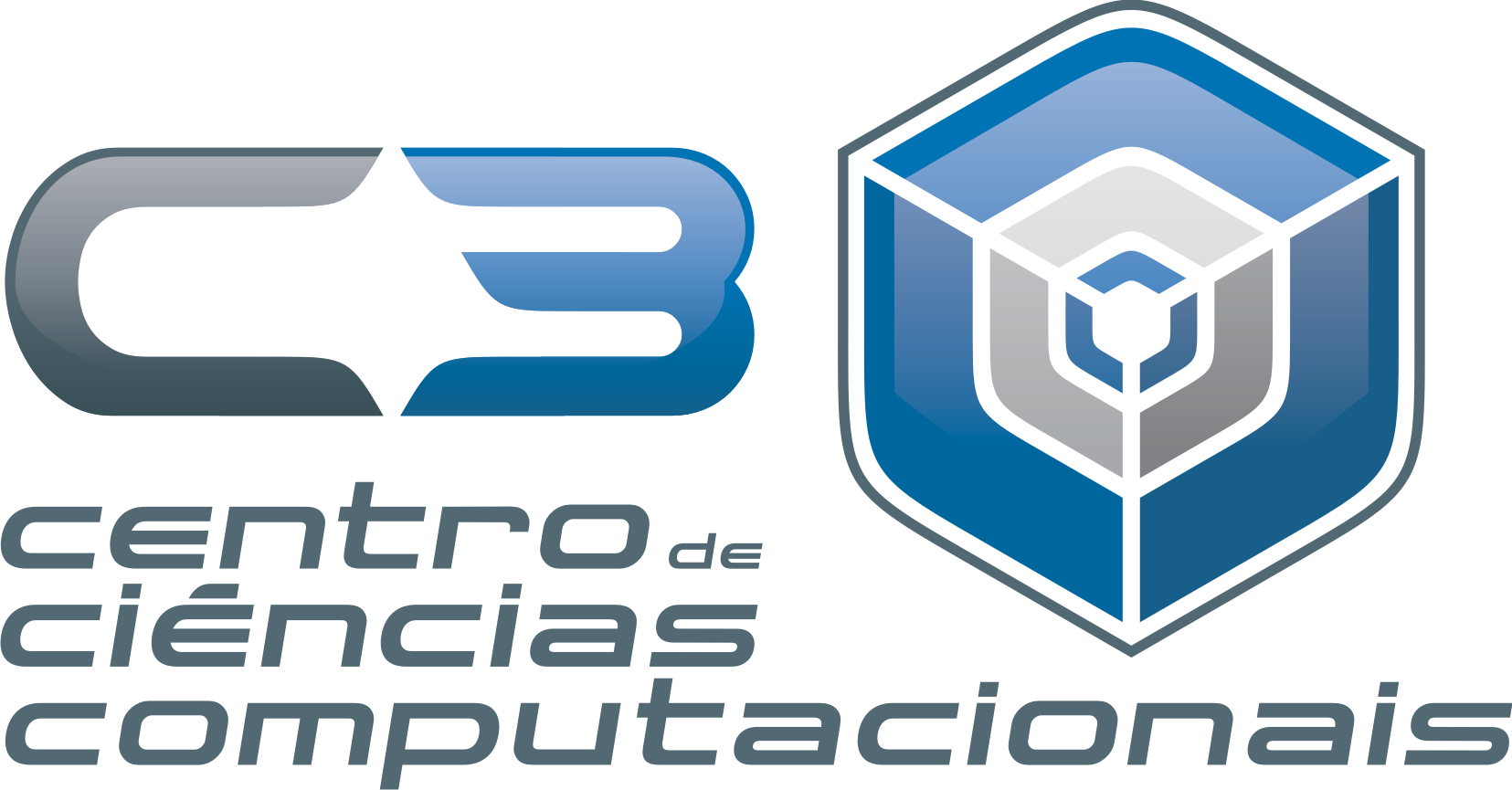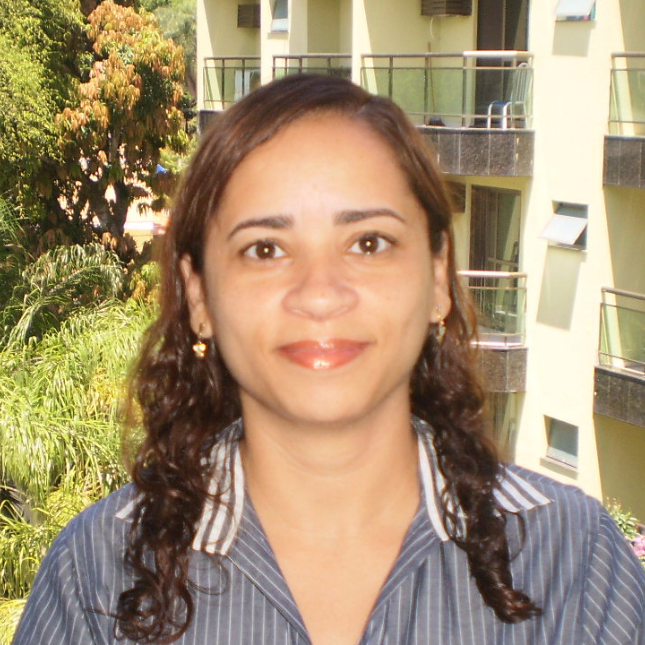
Aline Paes
alinepaes@ic.uff.brAline Paes is a professor in the Institute of Computing at Universidade Federal Fluminense (UFF), and a “Young Scientist of Our State” by FAPERJ. She leads the research group MeLLL-UFF (Machine Learning and Language Learning) virtual lab at UFF. She holds a D.Sc. and an M.Sc. degree in Systems Engineering and Computer Science from PESC/COPPE, UFRJ. During the doctorate, she was a visiting scholar at Imperial College London, UK. Aline works in Computer Science, with an emphasis on Artificial Intelligence, with interests and contributions in the following topics: relational machine learning, integrated with neural, statistical and logical techniques, natural language processing, updating and adapting models by transfer learning, theory review, explainable AI, induction of programs, games and AI for social good. Aline Paes has regularly published articles in one of the leading journals of the ML (Machine Learning Journal), among others, and national and international conferences of Artificial Intelligence. She regularly participates in the program committee of the major international conference of Artificial Intelligence, namely AAAI and IJCAI, among others, and acts as an ad-hoc reviewer of international journals. She has experience coordinating research projects approved by funding agencies, including CNPQ Universal, FAPERJ APQ1, and JCNE, all of them in the area of Artificial Intelligence and Machine Learning.
André Paim Lemos
andre.paim@loggi.comAndré Paim Lemos has a degree in Computer Science from the Federal University of Minas Gerais (UFMG) in 2003 and a master's degree (2007) and a doctorate (2011) in Electrical Engineering with an emphasis on Artificial Intelligence from the same university. Between 2011 and 2018 worked as a full professor in the Department of Electronic Engineering at UFMG. During this period he taught undergraduate and graduate courses in the areas of Automation, Distributed Systems, Real Time Programming, Computational Intelligence and Machine Learning; supervised several undergraduate, master's and doctoral students; published more than 70 articles in journals and conference proceedings in the field of Artificial Intelligence; and participated in R&D projects related to Data Mining and Artificial Intelligence applications in industrial problems financed by companies such as Petrobras, CEMIG, Gerdau, CHESF, among others. He currently works as Head of Data Analytics at Loggi, where he coordinates data management and analysis projects in the areas of Business Intelligence, Data Engineering and Data Science. Currently he also serves as a Collaborating Professor in the Graduate Program at the Faculty of Electrical and Computer Engineering (FEEC) at the University of Campinas (Unicamp)
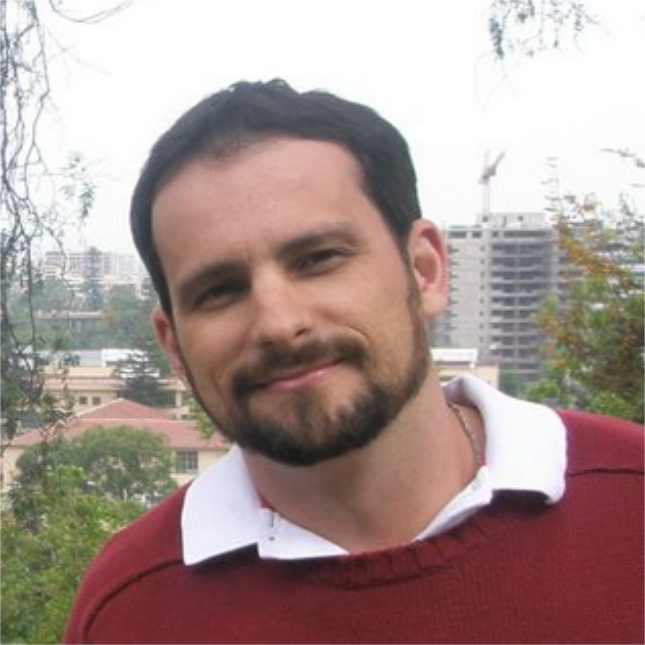
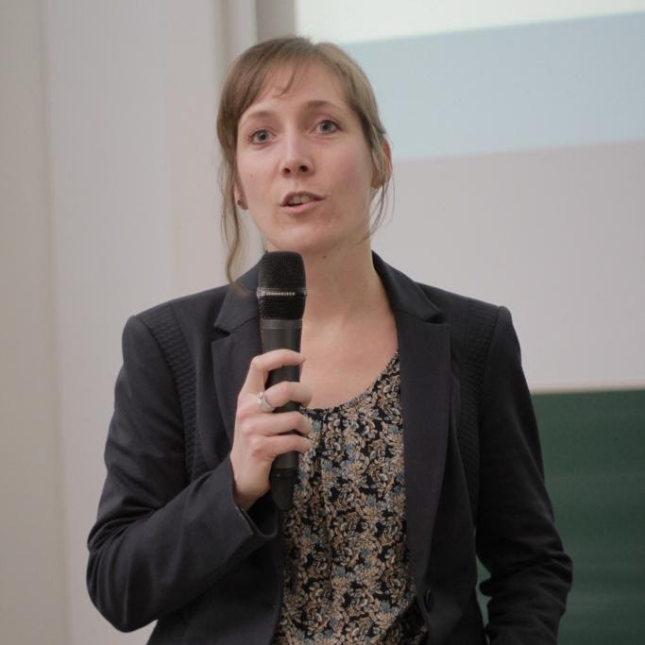
Celine Vens
celine.vens@kuleuven.beCeline Vens is an associate professor at the Faculty of Medicine at KULAK, a KU Leuven campus in Kortrijk, Belgium. Researchwise, she is affiliated to two groups: the Data mining for Biomedicine and Epidemiology research group of the Biomedical Sciences group at KULAK, and the interdisciplinairy ITEC research group of KU Leuven and imec, located at KULAK. Having a background in computer science, her main research interest is to develop machine learning algorithms for (mainly) biomedical applications. In other words, she develops new techniques for the automatic extraction of knowledge in large amounts of biomedical data.
Carlos Renato Lisboa Francês
rfrances@ufpa.brBolsista de Produtividade em Pesquisa 1-D. Realizou estágio pós-doutoral no Instituto de Engenharia de Sistemas e Computadores, Tecnologia e Ciência (INESC-TEC), Porto/Portugal, 2012. Possui graduação em Bacharelado Em Ciência da Computação pela Universidade Federal do Pará (1995), mestrado em Ciências da Computação e Matemática Computacional pela Universidade de São Paulo (1998) e doutorado em Ciências da Computação e Matemática Computacional pela Universidade de São Paulo (2001). É professor titular da Faculdade de Engenharia de Computação, da Universidade Federal do Pará, foi presidente da Empresa de Processamento de Dados do Estado do Pará (período 01/2007 e dez/2010) e, até 2011, foi membro da comissão assessora de computação do Instituto Nacional de Estudos e Pesquisas Educacionais (INEP-MEC). Pró-Reitor de Pós-Graduação, Pesquisa e Inovação Tecnológica da Universidade Federal do Sul e Sudeste do Pará (Unifesspa), de 2013 a 2016. Foi Reitor Pro-Tempore da Universidade Federal do Sul e Sudeste do Pará (Unifesspa), no período de junho a outubro de 2016. Tem experiência nas áreas de Sistemas de Telecomunicações e Ciência da Computação:- Em Sistemas de Telecomunicações: Planejamento, otimização e avaliação de desempenho de Smart Cities, redes sem fio, redes heterogêneas - HetNet, 4G/5G, PowerLine Communication-PLC, nuvens ópticas, entre outras; Em Ciência da Computação: Técnicas de Inteligência Computacional e de extração, correlação e reconhecimento de padrões em sistemas sociais, econômicos e ambientais, tais como: energia, saúde pública, previdência social, segurança pública, desmatamento e desflorestamento e economia
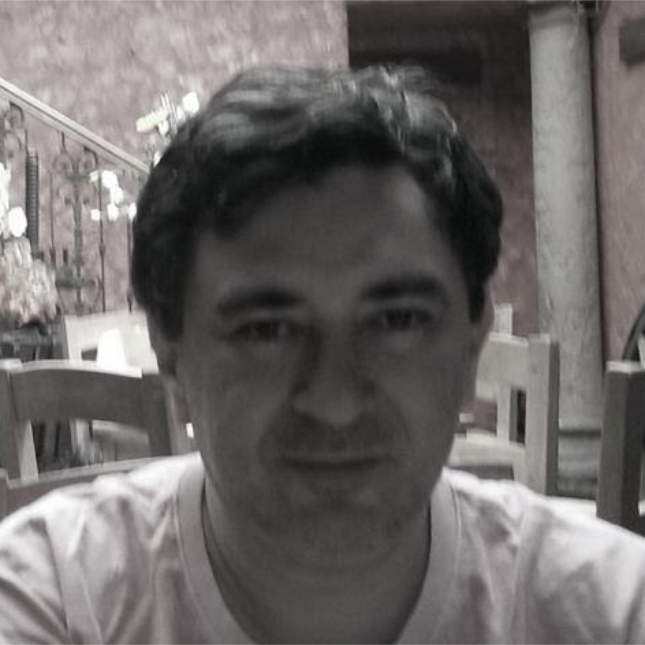
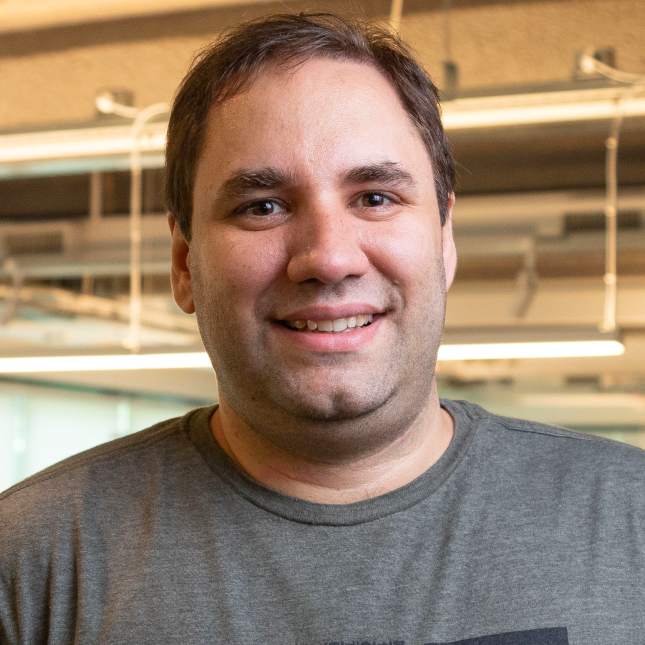
Davi Reis
davi@loggi.comDavi Reis, Computer Scientist, started his career working as a developer and white hat hacker in the world of ISPs. During his MSc, working as a database and information retrieval scientist, created the RTDM algorithm, co-authored the CMPH open source library and joined Akwan, the startup that became Google Brazil. He worked ten years at Google, leading projects in Search, Mobile and Social Ads. He brought Orkut from zero revenue to profitability. He also led project Google Pigeon, improving local search for billions of people. Co-founded, almost scaled and acquisold WorldSense. He is currently helping rebuild Brazil's logistics as the CTO for Loggi.
David Cox
David.D.Cox@ibm.comDavid Cox is the IBM Director of the MIT-IBM Watson AI Lab, a first of its kind industry-academic collaboration between IBM and MIT, focused on fundamental research in artificial intelligence. The Lab was founded with a $240m, 10 year commitment from IBM and brings together researchers at IBM with faculty at MIT to tackle hard problems at the vanguard of AI. Prior to joining IBM, David was the John L. Loeb Associate Professor of the Natural Sciences and of Engineering and Applied Sciences at Harvard University, where he held appointments in Computer Science, the Department of Molecular and Cellular Biology and the Center for Brain Science. David's ongoing research is primarily focused on bringing insights from neuroscience into machine learning and computer vision research. His work has spanned a variety of disciplines, from imaging and electrophysiology experiments in living brains, to the development of machine learning and computer vision methods, to applied machine learning and high performance computing methods. David is a Faculty Associate at the Berkman-Klein Center for Internet and Society at Harvard Law School and is an Agenda Contributor at the World Economic Forum. He has received a variety of honors, including the Richard and Susan Smith Foundation Award for Excellence in Biomedical Research, the Google Faculty Research Award in Computer Science, and the Roslyn Abramson Award for Excellence in Undergraduate Teaching. He led the development of "The Fundamentals of Neuroscience" (http://fundamentalsofneuroscience.org) one of Harvard's first massive open online courses, which has drawn over 750,000 students from around the world. His academic lab has spawned several startups across a range of industries, ranging from AI for healthcare to autonomous vehicles.


Filipe Padilha Testa
IT Product Manager at HuaweiIT Product Manager at Huawei since February this year, working in the Cloud & AI business unit. Responsible for the IT portfolio (Computing x86, ARM, AI - Storage - Private & Public Cloud). Before that, he had already worked at Huawei as an Engineer and Technical Leader, being responsible for the architecture and implementation of information technology and intelligent computing (IT/IC) solutions.
Hans De Canck
Hans.De.Canck@vub.beHans De Canck manages and directs the development of the AI Experience Center of the Vrije Universiteit Brussels (VUB). The AI Experience Center is a state of the art Digital Innovation Hub in Brussels. Several research centers from the Vrije Universiteit Brussel have joined forces to develop a multi-disciplinary Research and Innovation offering on AI towards Academia, Industry, Policy makers and the broader public. The AI Experience Center will accelerate this offering and collaborate with other stakeholders in the open innovation ecosystem. Hans works with the research teams across the university and acts as a coordinator for the AI for the Common Good initiative, launched early 2019. He has a background in research and IT development. The last 15 years he held different management positions in Research and Technology Organisations like iMinds, imec and VITO.
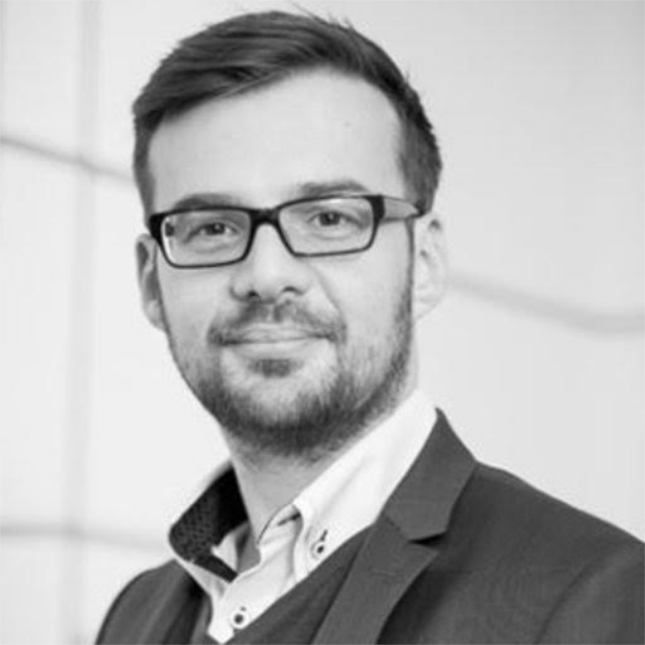
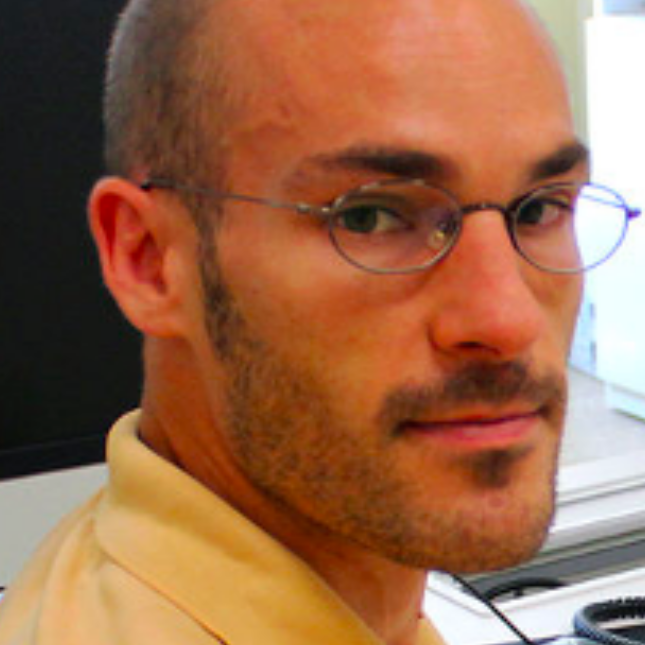
Jose Maria Alonso
josemaria.alonso.moral@usc.esDr. Jose M. Alonso received his M.Sc. and Ph.D. degrees in Telecommunication Engineering, both from the Technical University of Madrid (UPM), Spain, in 2003 and 2007, respectively. He is currently "Ramón y Cajal" researcher funded by the Spanish Government under project RYC-2016-19802, affiliated to CiTIUS-USC, secretary of the ACL Special Interest Group on Natural Language Generation (SIGGEN), board member of the European Society for Fuzzy Logic and Technology (EUSFLAT), Associate Editor of the IEEE Computational Intelligence Magazine (ISSN:1556-603X), member of the Editorial Board of the International Journal of Computational Intelligence Systems (ISSN: 1875-6883), Chair of the IEEE-CIS Task Force on Explainable Fuzzy Systems, member of the IEEE-CIS Task Force on Explainable Machine Learning, member of the IEEE-CIS Task Force on Fuzzy Systems Software, member of the IEEE-CIS Content Curation Subcommittee. In addition, he is the President of the Executive Board and Deputy Coordinator of the H2020-MSCA-ITN-2019 (Grant Agreement No 860621) project entitled “Interactive Natural Language Technology for Explainable Artificial Intelligence” (NL4XAI). He has published more than 140 papers in international journals, book chapters and conferences. His research interests include explainable artificial intelligence, computational intelligence, interpretable fuzzy systems, natural language generation, development of free software tools, etc.
Milton Stiilpen Júnior
milton@stilingue.com.brMestre em Ciência da Computação, área de atuação Recuperação de Informação e Mineração de Dados, atual CTO Stilingue, que é uma plataforma de social listening e responding desenvolvida para o português Brasil capaz de escutar as conversas online sobre sua marca e mercado, aplicando inteligência artificial no enriquecimento de dados.

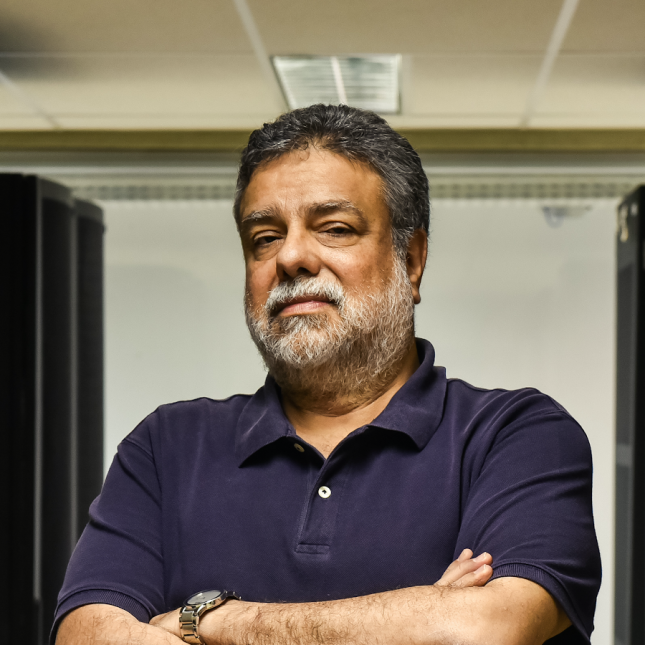
Sergio Novaes
sergio.novaes@advancedinstitute.aiHe is Full Professor of Physics at the São Paulo State University (Unesp), Scientific Director of the Center for Scientific Computing from Unesp and the co-founder of the Advanced Institute for Artificial Intelligence (AI2). He obtained the B.Sc. and Ph.D. degrees in Physics from the University of São Paulo (USP) and he was a Postdoctoral Research Fellow at the Lawrence Berkeley National Laboratory (Berkeley, USA). He was visiting researcher at the University of Wisconsin (Madison, USA), University of Valencia (Spain), and at the Fermi National Accelerator Laboratory (Chicago, USA). He has been the PI of several R&D projects associated to the private sector (Padtec, Intel, Huawei, etc.) which include an Intel Parallel Computing Center (IPCC) and a Center of Excellence in Machine Learning, and Huawei is supporting the development of Kytos, a new SDN Controller. He and his team have a partnership for more than a decade with Caltech which set the record of data transmission between the North and South Hemispheres three times during the bandwidth challenges at the SuperComputing conferences.
Stênio Fernandes
stenio.fernandes@elementai.comStenio Fernandes is one of the leaders in the AI Platform group at Element AI in Montreal, Canada. He is leading a team of Applied Research Scientists and AI Developers in the context of Time-dependent problems, such as Time Series Forecasting, Anomaly Detection, Spatio-Temporal modelling, and Concept Drifting. Element AI (EAI) models have been applied to several problems to different industry verticals, such as Capital Markets, Retail, Cybersecurity, Manufacturing, Insurance, and Transportation and Logistics. Currently, Stenio's team is fine-tuning EAI's state-of-the-art models on time series forecasting and making them viable to integrate into EAI products and services' portfolio. He provides technical, strategic, and intellectual leadership to all team members. He holds a Ph.D. in Computer Science (UFPE) with Post-Doctoral experience conducted at the University of Ottawa, Canada. He is an IEEE Senior Member and a certified Project Management Professional - PMP. As a former Professor of Computing Science, he was involved in dozens of scientific research projects in Brazil (UFPE) and Canada (University of Ottawa and Carleton University). He published more than 140 scientific research papers in major peer-reviewed conferences and journals. His citation indexes are: h-index = 18, i10-index = 30.
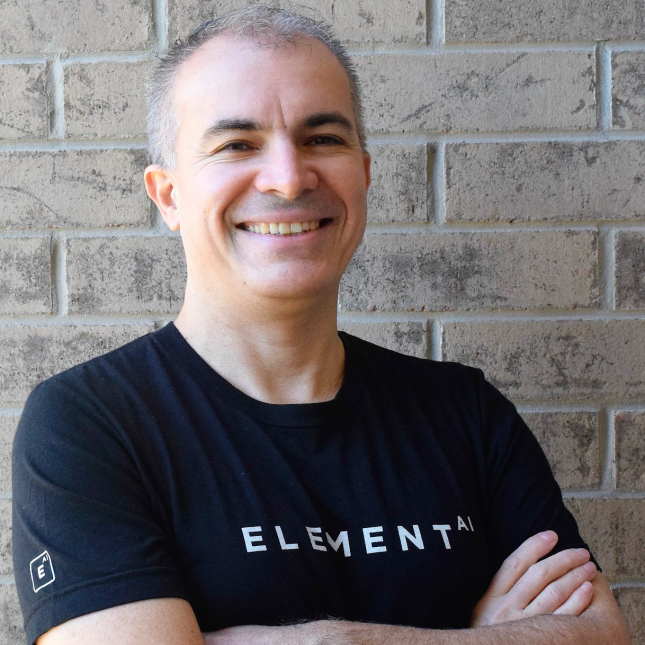
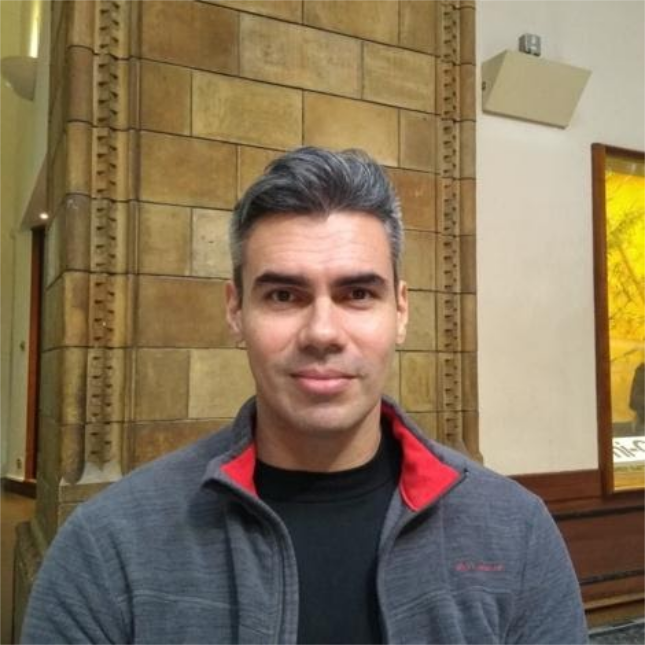
Sylvio Barbon
barbon@uel.brPossui graduação em Ciência da Computação pelo Centro Universitário do Norte Paulista (2005) e Mestrado em Física Computacional pela Universidade de São Paulo (2007) , graduação em Engenharia de Computação pelo Centro Universitário de Votuporanga (2008) e doutorado (2011) pelo IFSC/USP na área de Física Aplicada Computacional. Durante 2017 foi professor visitante na Università Degli Studi di Milano e desenvolveu um projeto de pós-doutorado na Università di Modena e Reggio Emilia. É professor no curso de Ciência da Computação da Universidade Estadual de Londrina e docente no Programa de Mestrado em Ciência da Computação da UEL e no Programa de Doutorado Associado em Engenharia Elétrica. Sua área de pesquisa está concentrada em Processamento Inteligente de Sinais, Aprendizado de Máquinas, Reconhecimento de Padrões e Visão Computacional.
Wagner Meira
meira@dcc.ufmg.brProfessor titular do Departamento de Ciência da Computação da Universidade Federal de Minas Gerais. Wagner é PhD em Ciência da Computação pela University of Rochester (1997), além de mestre e bacharel em Ciência da Computação pela Universidade Federal de Minas Gerais (1993 e 1990, respectivamente). Atualmente Wagner é pesquisador em produtividade do CNPq (nível 1B) e sub-coordenador do INCT-Cyber - Instituto Nacional de Ciência e Tecnologia para uma Sociedade Massivamente Conectada. Publicou mais de três centenas de artigos em periódicos e conferências de impacto e é co-autor dos livros Data Mining and Analysis - Fundamental Concepts and Algorithms (2014) e Data Mining and Machine Learning - Fundamental Concepts and Algorithms (2020), publicados pela Cambridge University Press. Seus interesses de pesquisa são em sistemas paralelos e distribuídos, em particular na sua escalabilidade e eficiência, variando de sistemas massivamente paralelos a plataformas baseadas na Internet, e em algoritmos de mineração de dados, sua paralelização e aplicação em áreas como ciência de dados, recuperação de informação, cibersegurança e governança eletrônica.
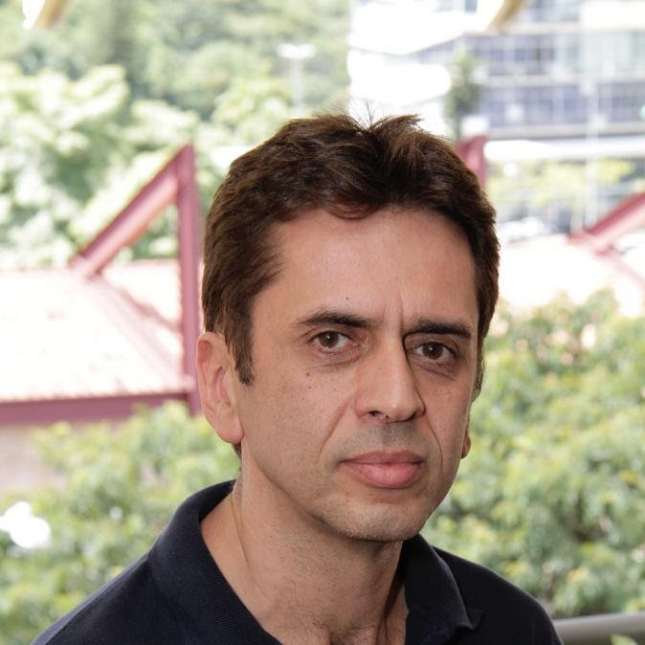
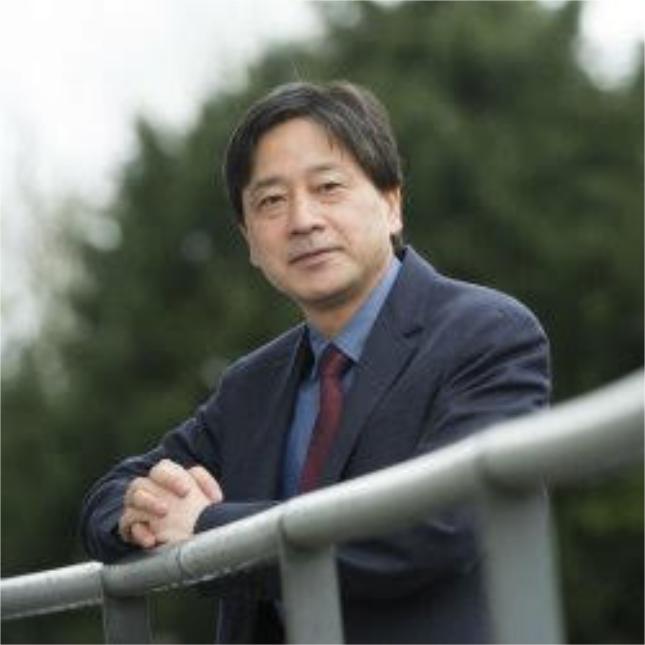
Yaochu Jin
yaochu.jin@surrey.ac.ukYaochu Jin received the B.Sc., M.Sc., and Ph.D. degrees from Zhejiang University, Hangzhou, China, in 1988, 1991, and 1996, respectively, and the Dr.-Ing. degree from Ruhr University Bochum, Germany, in 2001. He is currently a Distinguished Chair, Professor in Computational Intelligence, Department of Computer Science, University of Surrey, Guildford, U.K., where he heads the Nature Inspired Computing and Engineering Group. His main research interests include data-driven surrogate-assisted evolutionary optimization, multi-objective evolutionary learning, trustworthy machine learning, swarm robotics, and evolutionary developmental systems. Dr Jin is presently the Editor-in-Chief of the IEEE TRANSACTIONS ON COGNITIVE AND DEVELOPMENTAL SYSTEMS and the Editor-in-Chief of Complex & Intelligent Systems. He was an IEEE Distinguished Lecturer and Vice President for Technical Activities of the IEEE Computational Intelligence Society. He is the recipient of the 2018 and 2021 “IEEE Transactions on Evolutionary Computation Outstanding Paper Award”, the 2015, 2017, and 2020 “IEEE Computational Intelligence Magazine Outstanding Paper Award”, and the Best Paper Award of the 2010 IEEE Symposium on Computational Intelligence in Bioinformatics and Computational Biology. He was named by the Web of Science as a “Highly Cited Researcher in 2019”. He is a Fellow of IEEE.





